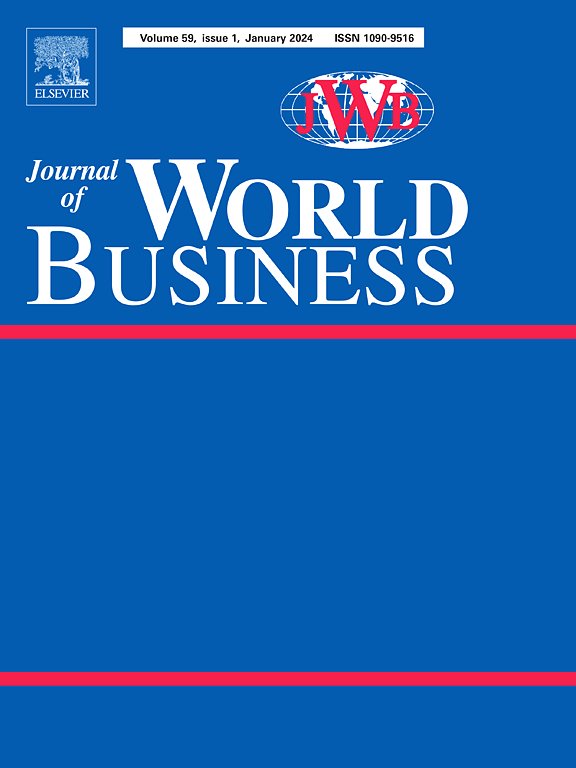Co-ethnic immigrant communities, cross-national distance, and foreign location choice of family firms from emerging economies
IF 8.8
1区 管理学
Q1 BUSINESS
引用次数: 0
Abstract
Can co-ethnic immigrant communities (CICs) influence the foreign location choice of family firms from emerging economies (FFEs) under different cross-national distance conditions? To answer this question, this study explores how the effect of CIC size on the foreign location choice of FFEs varies with four key types of cross-national distances. By using the data of 885 investments of Chinese family firms in 161 countries, this study finds that CIC size has a positive effect on the location choice of such firms. Moreover, the effect is strengthened by administrative and knowledge distances, weakened by global connectedness distance, and does not vary with relational distance. This study adds insights into the antecedents of foreign location choice and clarifies the role of CICs in helping FFEs overcome the challenges of different types of cross-national distances. By contextualizing FFEs, this study can benefit family firm internationalization research.
异族移民社区、跨国距离与新兴经济体家族企业海外区位选择
不同跨国距离条件下,同民族移民社区是否会影响新兴经济体家族企业的海外区位选择?为了回答这一问题,本研究探讨了CIC规模对外资企业海外区位选择的影响如何随四种关键类型的跨国距离而变化。本文利用中国家族企业在161个国家的885项投资数据,发现中投规模对家族企业的区位选择具有正向影响。此外,管理距离和知识距离增强了这种效应,全球连接距离削弱了这种效应,并且不随关系距离而变化。本研究进一步揭示了跨国企业海外区位选择的前因,并阐明了跨国企业在克服不同类型跨国距离挑战方面的作用。通过对家族企业国际化背景的分析,本研究对家族企业国际化研究具有借鉴意义。
本文章由计算机程序翻译,如有差异,请以英文原文为准。
求助全文
约1分钟内获得全文
求助全文
来源期刊

Journal of World Business
BUSINESS-
CiteScore
16.50
自引率
11.20%
发文量
73
期刊介绍:
The Journal of World Business holds a distinguished position as a leading publication within the realm of International Business. Rooted in a legacy dating back to 1965, when it was established as the Columbia Journal of World Business, JWB is committed to disseminating cutting-edge research that reflects significant advancements in the field. The journal actively seeks submissions that propel new theoretical frameworks and innovative perspectives on International Business phenomena. Aligned with its domain statement, submissions are expected to possess a clear multinational, cross-border, or international comparative focus, while remaining pertinent to the study of management and organizations. JWB particularly encourages submissions that challenge established theories or assumptions, presenting pioneering or counterintuitive findings. With an inclusive approach, the journal welcomes contributions from diverse conceptual and theoretical traditions, encompassing allied social sciences and behavioral sciences. Submissions should either develop new theories or rigorously test existing ones, employing a variety of qualitative, quantitative, or other methodological approaches. While JWB primarily caters to scholars and researchers, it values contributions that explore implications for Multinational Enterprises and their management, as well as ramifications for public policy and the broader societal role of business.
 求助内容:
求助内容: 应助结果提醒方式:
应助结果提醒方式:


